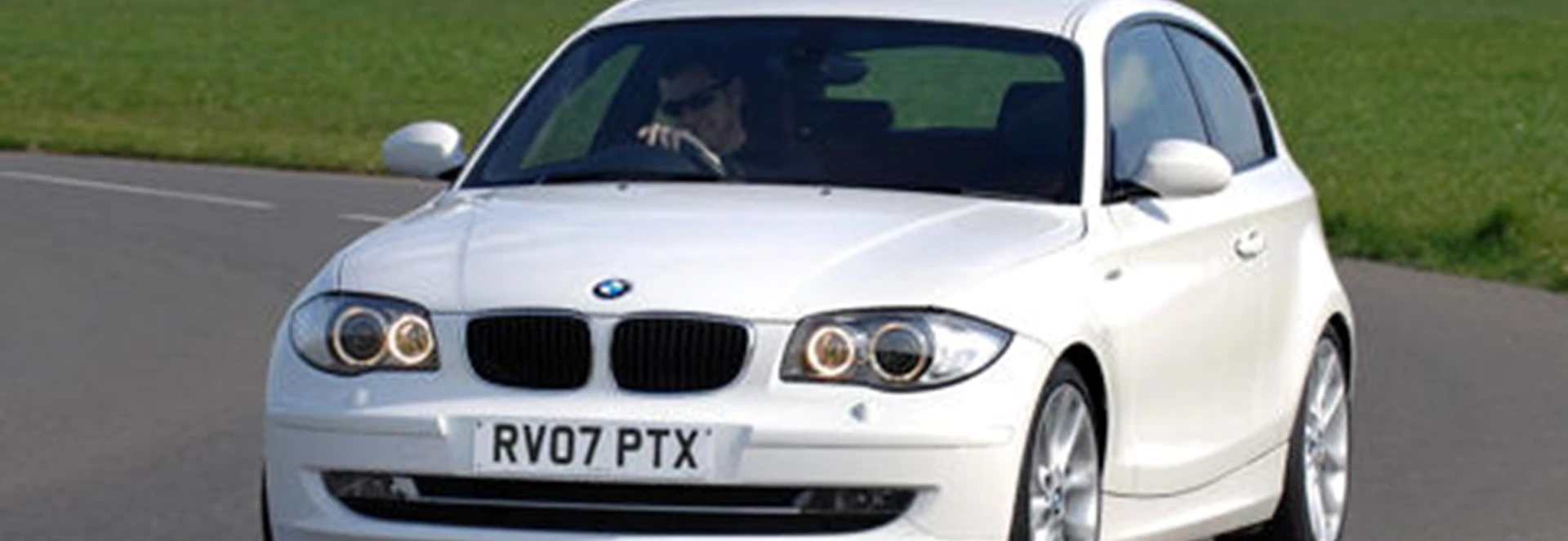BMW has been working hard recently to improve the fuel consumption - and therefore the CO2 emissions and running costs - of many of its models. The project comes under the title of EfficientDynamics, and there can hardly be a better example of what it's all about than the revised 118d.In CO2 terms, this is the cleanest car BMW has ever put on general sale, with a rating of 123g/km. There are various reasons for that - the Optimum Gear Shift Indicator (which suggests what gear would be most suitable for the current conditions if you're not already in it) isn't one of them, and nor is it my favourite piece of automotive technology, but it at least shows the spirit of the thing. Far more impressive is the Auto Start-Stop system. This has been introduced to nearly all manual-transmission 1-Series models, and while it's not unique in the industry it does come as a bit of a surprise in a car like this.It works simply enough; assuming there is more than a certain amount of charge in the battery, the engine will shut down when the car comes to rest and the driver selects neutral. No fuel is therefore wasted when the car is sitting at, say, a red traffic light. The engine restarts as soon as the clutch pedal is pushed beyond 10% of its travel, so by the time you need it to have fired up, it already has.There are two good ideas concerning the alternator, which in most cases charges the battery all the time and needs the power of the engine to do this. In the 1-Series, it's disconnected when not required (thereby releasing load on the engine and saving fuel), and it also takes some of its charge from energy recovered during the otherwise wasteful process of braking. The power steering is mechanical/electric, rather than the heavier and more energy-sapping mechanical/hydraulic alternative, and frontal intakes which close when the engine doesn't need much air improve the aerodynamics.Oh, and BMW now uses tyres which offer less rolling resistance than before. The impressive result of all this is the 123g/km figure mentioned above, plus a healthy combined fuel consumption figure of 60.1mpg. But if you think the 118d is just a fuel-economy special, think again.In fact, despite the considerable economy improvements, the new 118d is substantially more powerful than its predecessor, with a maximum output of 143bhp. Compared with other models in the 1-Series line-up, it's not dramatically quick, but a top speed of 130mph and 0-62mph in nine seconds show that it doesn't hang about either.Despite the name - and BMW long ago gave up being completely accurate in associating its cars' titles with the size of their engines - the 118d doesn't have a 1.8-litre engine. It actually has the same two-litre turbo diesel unit fitted to the 120d, but in slightly detuned form. The 120d is also more powerful than it used to be, and while this will make it more appealing to some customers there is certainly nothing wrong with the performance of the "lesser" car. Nothing wrong with the way it drives, either. No, let's put that more strongly - the 118d is the best 1-Series I've tried to date. Our previous road test of the early-model 120d made the point that that car had to be driven hard if you wanted to get the best out of it. The 118d doesn't provide the same rewards when you're giving it stick, but at the same time it's far less fussy and more enjoyable in gentler everyday motoring.Even at quite modest speeds, the balance resulting from what is, among modern small hatchbacks, the unique feature of rear-wheel drive (and specifically the distribution of weight throughout the car's length rather than around the front axle) is immediately apparent.Unlike many motoring journalists, I don't have a problem with power being transferred to the road through the front wheels, but even I find this layout quite satisfying, and a refreshing change from what's offered by everything else in the class.Most of the changes in this year's 1-Series are mechanical. The controversial looks, which I've never really liked, remain almost unchanged, but BMW has introduced some detail tweaks. In general, their function is to make the car seem lower than it really is, and to soften the effect of those large front light clusters - perhaps a quiet admission on BMW's part that in its original form the 1-Series looked dumpy and bug-eyed. On the other hand, there is no sense of apology that the 1-Series is expensive for a small hatch with very limited space for rear passengers. The basic price of the 118d SE tested here is £20,175, and you don't even get leather for that, though in other respects the equipment levels are high. Our car had a further £770 worth of optional equipment, including an upholstery upgrade (still cloth, though) and a better-than-standard audio system with a USB interface.The option that seems to offer best value is the Comfort package, which includes a rain sensor, automatic headlights, an anti-dazzle rear view mirror, a front armrest, cruise control, front parking sensors (rears are standard on the SE), cupholders, an illuminated glovebox and - for the luggage compartment - storage nets, two straps and a 12v socket. That lot costs £195, which isn't too scary in the context of a £20,000 car. Engine 1995 cc, 4 cylinders Power 143 bhp @4000 rpm Torque 221 ib/ft @2000 rpm Transmission 6 speed manual Fuel/CO2 60.1 mpg / 123 g/km Acceleration 0-62mph: 8.9sec Top speed 130 mph Price From £20901.00 approx Release date 26/05/2007

Our Rating



